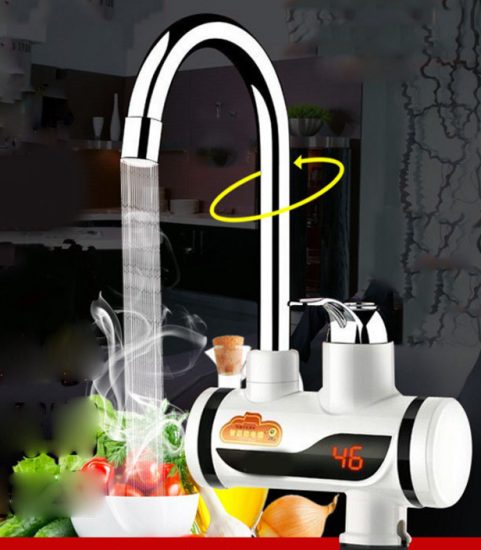As environmental consciousness continues to grow, eco-friendly faucet options have become a popular choice for those seeking sustainable solutions. Here’s a guide to water wisdom with eco-friendly faucet options that promote water conservation and reduce environmental impact:
- Low-Flow Faucets:
- Low-flow faucets are designed to minimize water consumption by restricting the flow rate.
- Look for WaterSense-labeled faucets, which meet EPA criteria for water efficiency without compromising performance.
- Sensor-Activated Faucets:
- Sensor-activated or touchless faucets reduce water waste by only running when hands are detected.
- These faucets are commonly used in public spaces and can be installed in homes for added convenience.
- Aerators:
- Faucet aerators mix air with water to maintain consistent water pressure while reducing overall water usage.
- They are easy to install and can be added to existing faucets.
- Smart Faucets:
- Some smart faucets come with features like water usage monitoring, allowing users to track and manage their water consumption.
- Integration with smart home systems can contribute to overall energy efficiency.
- Self-Closing Faucets:
- Self-closing faucets automatically shut off after a set period, preventing accidental water waste.
- Commonly found in commercial settings, they can be installed in homes for water-saving benefits.
- Rainwater Harvesting Faucets:
- Faucets that allow for rainwater harvesting enable users to utilize collected rainwater for various purposes.
- This promotes sustainability by reducing reliance on traditional water sources.
- Greywater Faucets:
- Greywater systems redirect lightly used water (from sinks, showers, etc.) for non-potable purposes like irrigation.
- Faucets designed for greywater use contribute to water conservation efforts.
- Thermostatic Faucets:
- Thermostatic faucets help save water by quickly reaching and maintaining the desired temperature, reducing the need for excess water to find the right balance.
- Bamboo or Sustainable Material Faucets:
- Opt for faucets made from sustainable materials such as bamboo or recycled metals.
- These materials have a lower environmental impact compared to traditional faucet materials.
- DIY Leak Detection:
- Some faucets come with DIY leak detection features or can be equipped with add-ons to monitor and detect leaks.
- Early leak detection helps prevent water wastage and potential damage.
- Water Filtration Systems:
- Faucets with built-in water filtration systems encourage the use of tap water over bottled water, reducing plastic waste.
- These systems improve water quality without the need for disposable filters.
- Educational Faucet Designs:
- Some faucets come with visual indicators or educational elements to encourage users to be mindful of their water usage.
- These designs promote awareness and responsibility.
By choosing eco-friendly faucet options, you contribute to water conservation efforts and reduce your environmental footprint. Water wisdom involves making conscious choices that benefit both the planet and future generations.


